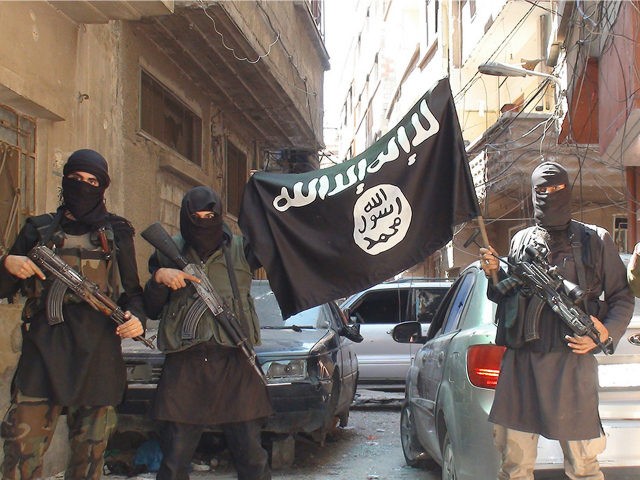The territory in Iraq and Syria controlled by Islamic State (ISIS/ISIL) jihadists shrunk by another 12 percent during the first half of 2016, according to an analysis by IHS, a defense research firm.
“In 2015, the Islamic State’s caliphate shrunk by 12,800 km² to 78,000 km², a net loss of 14 percent,” reports IHS. “In the first six months of 2016, that territory shrunk again by 12 percent. As of 4 July 2016, the Islamic State controls roughly 68,300 km² in Iraq and Syria, which is roughly the size of Ireland or the US state of West Virginia.”
According to the research firm, ISIS has lost about a quarter of the territory it once held in Iraq and Syria — an estimated 25 percent decrease from 90,800 km² to nearly 68,300 km².
The IHS rate is lower than the Obama administration’s recent estimate of a nearly 33 percent loss of ISIS-controlled lands in Iraq (47 percent) and Syria (20 percent). IHS did not provide percentages by country.
“Over the past 18 months, the Islamic State has continued to lose territory at an increasing rate,” explained Columb Strack, senior analyst at IHS and lead analyst for the IHS Conflict Monitor:
As the Islamic State’s caliphate shrinks and it becomes increasingly clear that its governance project is failing, the group is re-prioritizing insurgency. As a result, we unfortunately expect an increase in mass casualty attacks and sabotage of economic infrastructure, across Iraq and Syria, and further afield, including Europe.
IHS adds:
In April 2016, the IHS Conflict Monitor team outlined the decline in primary revenue sources for the Islamic State. In mid-2015, the Islamic State’s overall monthly revenue was around $80 million. As of March 2016, the Islamic State’s monthly revenue dropped to $56 million.
The $56 million figure has likely decreased further since March, by at least another 35 percent, noted Ludovico Carlino, senior analyst at IHS.
“Combined with the military setbacks on the ground, this is having an impact on the internal cohesion of the group as indicated by a marked increase in defections and desertions since January 2016,” he added.
As ISIS reportedly shrinks in Iraq and Syria, losing both territory and fighters, the group has expanded to eight countries and regions, including Libya, Saudi Arabia, Yemen, Sinai, Nigeria, Algeria, the Caucuses, and Afghanistan-Pakistan, according to the Obama administration.
The terrorist group is also seeking to officially establish branches in the Philippines, Bangladesh, and Somalia where it already has a presence, Brett McGurk, Obama’s special envoy for the U.S.-led coalition against ISIS, told lawmakers at the end of June.
In the Philippines, the local jihadist group Abu Sayyaf has pledged allegiance to ISIS. Meanwhile, in Somalia, ISIS sympathizers are engaged in turf battles with the local al-Qaeda affiliate al Shabaab.
Many of ISIS’s global branches continue to grow.
Firas Abi-Ali, senior principal analyst at IHS, pointed out:
For groups like the Islamic State, the battle for hearts and minds is just as important, if not more important, than the military confrontation. As such, the expansion of terrorist attacks outside the core caliphate helps the group claim that it is still gaining support and expanding its influence, despite setbacks in Iraq and Syria. The Islamic State’s messaging has therefore adjusted to the caliphate’s loss of territory by pointing to its expansion outside Iraq and Syria, and to Allah’s assurance of final victory.
On Wednesday, the terrorist group released a video highlighting the “organization of the caliphate” in which it claimed to control of 35 “wilayat” (provinces), including 19 in Syria and Iraq.
“Over the coming year we are likely to see more towns and cities become isolated from the core caliphate, as was the case in Ramadi and Fallujah,” declared Strack of IHS. “This could enable the fragmentation and gradual defeat of the Islamic State as a conventional force.”
ISIS is facing increasing pressure in northern Syria, home to the group’s de facto capital of Raqqa and a pivotal area for the jihadists that provides access to the Turkish border, notes IHS.

COMMENTS
Please let us know if you're having issues with commenting.